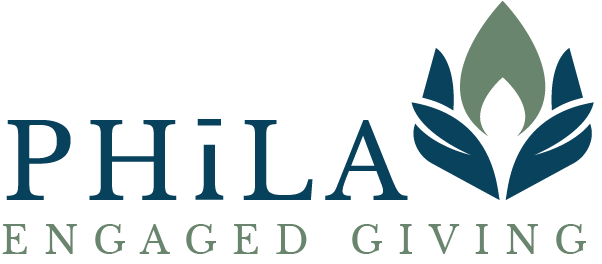by Lauren Janus
I think we can all agree it’s been a long spring.
With summer’s sultry nights and icy drinks just around the corner, in normal times, we’d be searching for the best escapist reads. But these days are far from normal. If picking up a copy of the latest crime fiction doesn’t feel quite right given the current state of affairs, I hear you.
More than any other major event of the past 50 years, the COVID crisis has illuminated our nation’s shocking disparities in health, education, and opportunity. And the brutal, on camera murder of George Floyd only added fuel to the fire that has always simmered due the injustices faced by African-Americans at the hands of police.
If you’re ready to educate yourself about race, poverty, and injustice this summer, you’re in luck. A number of nonfiction books have come out in recent years that drives these issues home in a really engaging way.
Below are a few of my favorite books that get top scores for research quality, humanizing stories, and readability:
1. So You Want to Talk About Race, Ijeoma Oluo
This book has been on The New York Times Bestseller list for months, and for good reason. If you care about the issues facing the Black community, you must talk about race and Oluo gives you the background and vocabulary to do it. It is not written just for White people who deny that racism exists or who “don’t see color”, but also for people who think they “get it” but haven’t learned all the quiet ways it shows up.
Oluo seems to write so effortlessly and clearly, this book just a pleasure to read, despite the intense emotional and political topics. Oluo explains difficult and timely issues like police brutality, the myth the “model minority”, and the “hurting your own cause” storyline, by sharing personal stories, detailed examples, and statistics. And best of all, it ends with ideas for actions you can take to battle systemic racism using the knowledge you've gained from this book.
2. Stamped: Racism, Antiracism, and You, Jason Reynolds and Ibrahm X. Kendi
In 2016, American University history professor Ibrahm X. Kendi won the National Book Award for his pioneering book on the history of racist ideas in America. If Kendi’s seminal—yet highly recommended—book feels a bit daunting as a poolside read, never fear. Just this year, Kendi teamed up with children’s book writer Jason Reynolds to write a version of Stamped for the middle school crowd, called Stamped: Racism, Antiracism and You.
The book covers material similar to its grown-up version, including a comprehensive and disturbing description of how racist and assimilationist viewpoints, rooted in our country’s very foundation, have fermented and embedded themselves into American culture. But because it’s for a young adult audience, the book is also fast-pasted, often irreverent, and focused on ways the reader can seek and stamp out racist ideas in every day life.
3. Janesville: An American Story, Amy Goldstein
To understand the struggles of many living in today’s Middle America, crack open a copy of Janesville. One of President Obama’s best books picks for 2017, this is the story of what happens when a large factory leaves a town where it’s been a fixture of stable employment for generations.
Amy Goldstein is a Washington Post journalist who follows a cluster of residents of Janesville, Wisconsin, over several years. Some recover from the blow of middle age unemployment, some don’t. What she reveals is the heartbreak and very real struggle of people who are left “out in the cold.”
4. Evicted: Poverty and Profit in the American City, Matthew Desmond
Harvard sociologist Matthew Desmond wrote Evicted in 2016 after spending years interviewing residents of the poorest neighborhoods of Milwaukee. What he describes in this highly engaging, often infuriating book, is a broken system in which the poor are forced to pay well over half of their income on substandard housing from which they will very likely be evicted for the most minor of offenses.
This book is especially useful for anyone hoping to understand the role of affordable, safe and stable housing in breaking the circle of poverty.
5. Nickle and Dimed: On Not Getting by in America, Barbara Ehrenreich
If you’re looking for a book that will take you for an engrossing, enlightening walk in someone else’s shoes, pick up a copy of Nickle and Dimed. To research this book, Barbara Ehrenreich takes a job as a low-wage worker for one month in three different states—Florida, Maine and Minnesota. Her goal is to live only off of the salary she receives, and gain a greater understanding of the lives of people often referred to as America’s “hidden poor.”
Ehrenreich ends up working a string of jobs in each state in order to make enough to pay her rent and bills. She works as a waitress, a dietary aid in a nursing home, a house cleaner and a Wal-Mart worker—”essential workers” in today’s parlance. The injustices and humanity she describes are heartbreaking and energizing at the same time. A highly recommended read.
How to Help
All of the books above will make you want to take action on of poverty, hunger, racial justice, and inequality in general. If you’re moved to give after finishing that last page, have a look at our vetted list of organizations around the country, or these organizations below:
6 Ways to Support Black Lives, including opportunities in Minneapolis, was created by Giving Compass and Funders for Justice.
FareStart Hunger relief and social services for food service workers.
One Fare Wage. Emergency assistance for hourly workers affected by COVID.
Feeding America Network of food banks across the country.
You can also browse this list of social justice funders and initiatives provided by Justice Funders.
Finally, for ideas on giving locally, search this map of COVID-19 Response and Recovery Funds by region.
Happy reading and I wish you a safe, sane, and optimistic summer.

